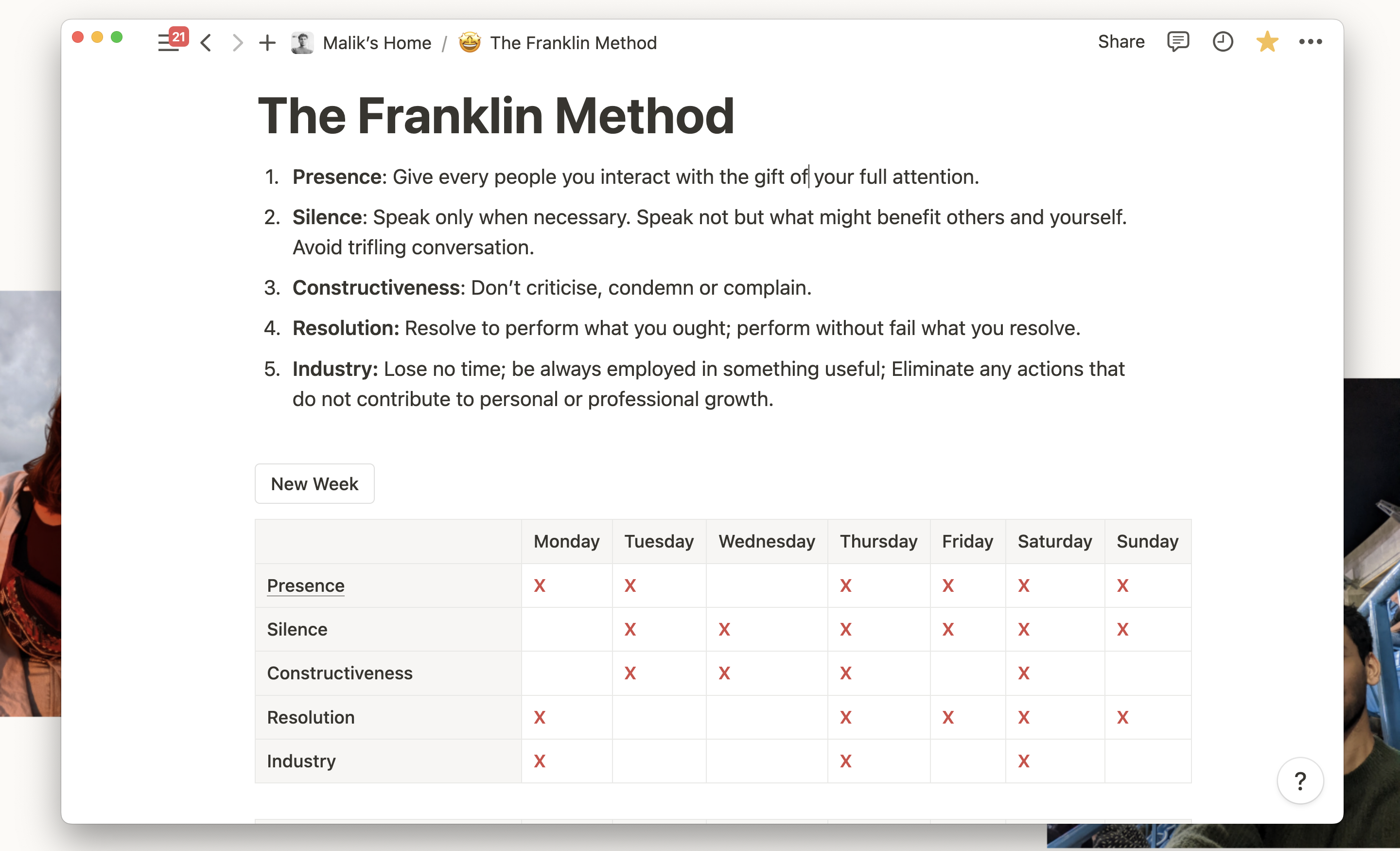The Benjamin Franklin Method for Self-Improvement
Real, lasting transformation can sometimes feel out of reach. And although different people may need different systems, there are powerful principles we can extract from Benjamin Franklin's system for self-improvement.
Benjamin Franklin was one of the founding fathers of the United States and served as diplomat in France. In his autobiography, he outlined the program he designed to cultivate his personal character. This is a system he began working on when he was 20 years-old and I believe it contributed greatly to his success in the public sphere.
To gain more awareness of his progress, he made a list of 13 personal virtues he found desirable. Then, he created a table with a column for each day of the week. Every day, he would track his progress and add a marking to the values he failed to live by. The goal was to have an empty table without any marking.
Benjamin Franklin's 13 Virtues
-
Temperance: Eat not to dullness; drink not to elevation.
-
Silence: Speak not but what may benefit others or yourself; avoid trifling conversation.
-
Order: Let all your things have their places; let each part of your business have its time.
-
Resolution: Resolve to perform what you ought; perform without fail what you resolve.
-
Frugality: Make no expense but to do good to others or yourself; waste nothing.
-
Industry: Lose no time; be always employed in something useful; cut off all unnecessary actions.
-
Sincerity: Use no hurtful deceit; think innocently and justly, and if you speak, speak accordingly.
-
Justice: Wrong none by doing injuries or omitting the benefits that are your duty.
-
Moderation: Avoid extremes; forbear resenting injuries so much as you think they deserve.
-
Cleanliness: Tolerate no uncleanliness in body, clothes, or habitation.
-
Tranquility: Be not disturbed at trifles, or at accidents common or unavoidable.
-
Chastity: Rarely use venery but for health or offspring, never to dullness, weakness, or the injury of your own or another's peace or reputation.
-
Humility: Imitate Jesus and Socrates.
The virtues are ordered by their likelihood to affect the others, once they are acquired. Consolidating one habit, should make acquiring the next easier. You should focus on a single value every week and only move on to the next one once your progress is tangible.
Franklin's system is an example of personal discipline and tenacity. It invites a practice of daily mindfulness and reflection, which becomes easier and compounds over time. Although I don't follow it religiously, I still believe outlining the virtues we value the most can be a powerful way of increasing our awareness about the kind of person we want to be.
